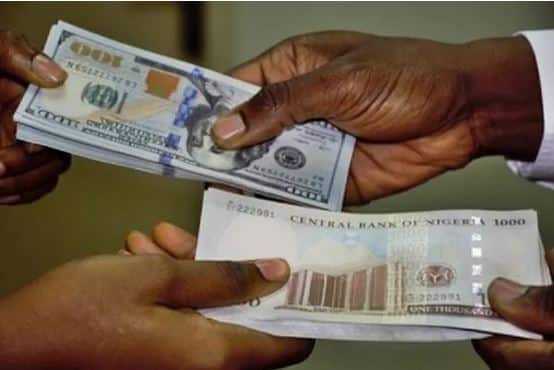Nigerian naira traded at N581 per dollar on Friday at the parallel section of the foreign exchange market.
The figure is lower by N3 or 0.5 percent from the N578 it traded last week.
Bureaux De Change operators (BDCs), popularly known as “abokis”, said one dollar exchanged for N581 at the street market.
The traders put the buying price of the dollar at N575 and the selling price at N581, leaving a N6 profit margin.
Since the suspension of trading information by abokiFX — citizens have resorted to street traders for the current parallel market rates of the local currency.
A parallel market (street market) is characterised by noncompliant behaviour with an institutional set of rules.
But the Central Bank of Nigeria (CBN) has consistently maintained that the parallel market represents less than one percent of foreign exchange (FX) transactions and should never be used to determine Nigeria’s naira/dollar exchange.
Meanwhile, the naira appreciated by 0.04 percent at the official market to close at N416.50 on Thursday, according to details on FMDQ OTC Securities Exchange — a platform that oversees official foreign-exchange trading in Nigeria.
Further checks by TheCable showed that the euro has weakened against the naira amid low demand for the currency as worries increased over the impact of the escalating Russia-Ukraine war.
The euro is the official currency of 19 of the 27 member states of the European Union (EU).
Street traders across forex markets in Lagos who spoke to TheCable quoted the rate at N600/€1, depreciating by N20 or 3.2 percent from the N620/€1 it traded last week.
A BDC trader told TheCable that no more is buying euro for now since the start of Russia’s invasion of Ukraine.
On the apex bank’s website, the local currency closed at N459.6/€1 at the official market on Thursday.

Leave a Reply